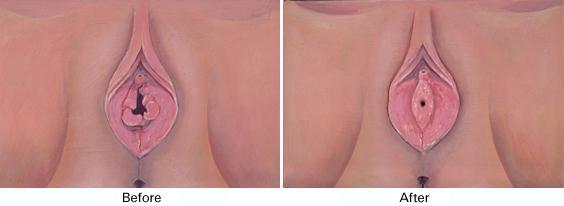Hymenotomy in Saudi Arabia
Search and Compare the Best Clinics and Doctors at the Lowest Prices for Hymenotomy in Saudi Arabia

Find the best clinics for Hymenotomy in Saudi Arabia
No clinics available
United Arab Emirates offers the best prices Worldwide
Price: $ 547

- Home
- Saudi Arabia
WHY US?
At Medijump, we're making medical easy. You can search, compare, discuss, and book your medical all in one place. We open the door to the best medical providers worldwide, saving you time and energy along the way, and it's all for FREE, no hidden fees, and no price markups guaranteed. So what are you waiting for?

Free

Best Price

Widest Selection

Risk-Free
What you need to know about Hymenotomy in Saudi Arabia

Hymenotomy is a surgical procedure to remove or open the hymen – the membrane near the opening of the vagina. It is usually performed on a woman with a septate or imperforate hymen that obstructs the flow of menstruation, as well as an unusually thick or rigid hymen, such as microperforated hymen, which limits access to the vaginal opening, causing pain and discomfort for sexual activities and removing/inserting tampons.
What does a Hymenotomy Procedure Involve?
You will receive general anesthetic before the procedure, but in some cases, a local anesthetic is used instead. Then, your surgeon will create an opening by cutting the membrane of the hymen using special surgical tools. The final step is securing any incisions using small dissolving stitches, which will be absorbed by your body naturally as you heal.
How Long Should I Stay in Saudi Arabia for a Hymenotomy Procedure?
You may be able to leave the hospital on the same day. However, you should plan to stay in Saudi Arabia for 5 to 7 days for initial recovery. Your doctor may also schedule a follow-up hospital checkup to monitor your healing.
What's the Recovery Time for Hymenotomy Procedures in Saudi Arabia?
Most patients feel well enough to return to work and resume their normal activities within a few days, but you may be recommended to rest for 1 week. You should be able to have sexual intercourse after 2 to 4 weeks following a Hymenotomy. It is important to consult with your surgeon as to when you can get back to your full routine, including work and exercises.
What sort of Aftercare is Required for Hymenotomy Procedures in Saudi Arabia?
It is very important to follow the post-operative care instructions that your surgeon gives you to help with your recovery, which usually includes recommended exercise, dietary restriction, and wound care. You also need to keep the genital area dry and clean and avoid inserting anything into your vagina, including a menstrual cup, tampon, or diaphragm at least until you have recovered completely.
What's the Success Rate of Hymenotomy Procedures in Saudi Arabia?
Hymenotomy is very safe, effective, and it has a high success rate. Although risks of side effects and complications are rare, they can occur, which include infection, bleeding, inflammation, scarring, injury to other organs, lingering pain, and scar tissue. Some people may also have complications when they become pregnant and give birth after the procedure, so make sure you consult with your surgeon if you are planning to become pregnant.
Are there Alternatives to Hymenotomy Procedures in Saudi Arabia?
Hymenotomy is currently the only option to treat imperforate, microperforated, and septate hymen. However, if you do not want to undergo surgery, you should discuss with your doctor what your best option will be.
What Should You Expect Before and After the Procedure
Before the surgery, you may be unable to have sex, menstruate, or use a tampon. After a hymenotomy, all of these problems are relieved and you can enjoy them without any pain. You will also be able to have normal menstruation.
Whilst the information presented here has been accurately sourced and verified by a medical professional for its accuracy, it is still advised to consult with your doctor before pursuing a medical treatment at one of the listed medical providers
No Time?
Tell us what you're looking for and we'll reachout to the top clinics all at once
Enquire Now

Popular Procedures in Saudi Arabia
Prices Start From $342

Prices Start From $222

Prices Start From $714

Prices Start From $69

Recommended Medical Centers in Saudi Arabia for procedures similar to Hymenotomy

- Interpreter services
- Translation service
- Religious facilities
- Medical records transfer
- Medical travel insurance
- Health insurance coordination
- TV in the room
- Safe in the room
- Phone in the room
- Private rooms for patients available

- Interpreter services
- Translation service
- Religious facilities
- Medical records transfer
- Medical travel insurance
- Health insurance coordination
- TV in the room
- Safe in the room
- Phone in the room
- Private rooms for patients available

- Interpreter services
- Translation service
- Religious facilities
- Medical records transfer
- Medical travel insurance
- Health insurance coordination
- TV in the room
- Safe in the room
- Phone in the room
- Private rooms for patients available
Hymenotomy in and around Saudi Arabia
Introduction
The Kingdom of Saudi Arabia is the birthplace of Islam and is home to the holy Muslim city of Mecca, all Muslims are required to make a pilgrimage to this city at least once during their life and non-Muslims are forbidden from the city. There are other wonders to be found here, from the Red Sand Dunes in Riyadh, Jeddah’s coral architecture, to the azure waters of the Red Sea. In the last few years, the Kingdom has developed a plan to encourage international patients to seek treatment at its medical centers. The healthcare sector in the country has constantly improved and developed and the country has all the attributes to have a successful medical tourism industry, such as ultra-modern hospitals that are well-equipped with cutting-edge technology, foreign-trained doctors and specialists, and a well-established private healthcare sector.
Popular Cities and Regions in Saudi Arabia
The capital city is Riyadh, which is one of the wealthiest cities in the world. It offers amazing attractions for tourists, such as the Masmak Fortress, the National Museum, the Kingdom Center, the Sky Bridge, Riyadh Zoo, and the Antiquities Museum. Another popular city is Jeddah, which is called the Bride of the Red Sea. It’s a large metropolitan city with an incredible waterfront and beautiful old town. It’s the traditional gateway to Mecca, as well as the historic crossroads of traders and pilgrims. Most tourists visit this city to admire its World Heritage Red Sea architecture, explore its lively souq, relax in its laid-back coastline, and try its world-class cuisine.
Transport in Saudi Arabia
King Fahd International Airport is the largest airport in Saudi Arabia, located in the city of Dammam. It serves flights to and from numerous cities in Europe, Asia, and the Middle East. Domestic flights are the best way to travel around this country. Buses, taxis, and car rental are widely available for travel inside the cities.
Visas in Saudi Arabia
Almost all nationalities need to have a visa to visit Saudi Arabia, except for citizens of Bahrain, Kuwait, Oman, and the UAE. eVisa or visa on arrival is available for holders of passports of 51 countries, including all EU countries, the US, the UK, and Japan. Most other countries need to obtain a visa prior to arrival.
Weather in Saudi Arabia
Saudi Arabia has two seasons, summer and winter. Summer (April – October). The weather is extremely hot and humid. The average temperatures range between 40oC to 45oC, but it can soar to 49oC. Winter, from November to March, brings mild temperatures, with an average of 20oC during the day and 10oC during the night.
Additional Info
- Local Currency: Saudi riyal (SAR) is the currency. 1 USD is equivalent to 3.75 SAR.
- Money & Payments: ATMs are widespread and credit cards are widely accepted. There is no tipping culture.
- Local Language: Arabic is the official language, but English is widely spoken.
- Local Culture and Religion: Women do not need to wear abayas (a long black, robe-like dress) anymore, except at religious sites. However, both men and women have to wear modest clothing and refrain from showing too much skin. Islam is the state religion and the country’s law requires all citizens to be Muslim. Any non-Muslims who want to acquire Saudi Arabian nationality will have to convert to Islam. There are Hindus, Christians, and Buddhists in the country but all of them are foreign nationals.
- Public Holidays: The most celebrated public holidays in Saudi Arabia are Eid Al-Fitr, Eid Al-Adha, ad National Day.
Popular Searches
- Plastic Surgery in Thailand
- Dental Implants in Thailand
- Hair Transplant in Thailand
- Breast Augmentation Thailand
- Gastric Sleeve in Thailand
- Gender Reassignment Surgery in Thailand
- Laser Hair Removal in Bangkok
- Botox in Bangkok
- Dermatology in Bangkok
- Breast Augmentation in Bangkok
- Coolsculpting in Bangkok
- Veneers in Turkey
- Hair Transplant in Turkey
- Rhinoplasty in Turkey
- Stem Cell Therapy in Mexico
- Rhinoplasty in Mexico
- Liposuction in Mexico
- Coolsculpting in Tijuana
- Rhinoplasty in Korea
- Scar Removal in Korea
- Gastric Sleeve in Turkey
- Bone Marrow Transplant in India
- Invisalign in Malaysia
- Plastic Surgery in the Dominican Republic
- Tummy Tuck in the Dominican Republic
- Plastic and Cosmetic Surgery in Poland
- Rhinoplasty in Poland
- Hair Implant in Poland
- Dental Implants in Poland
- IVF in Turkey